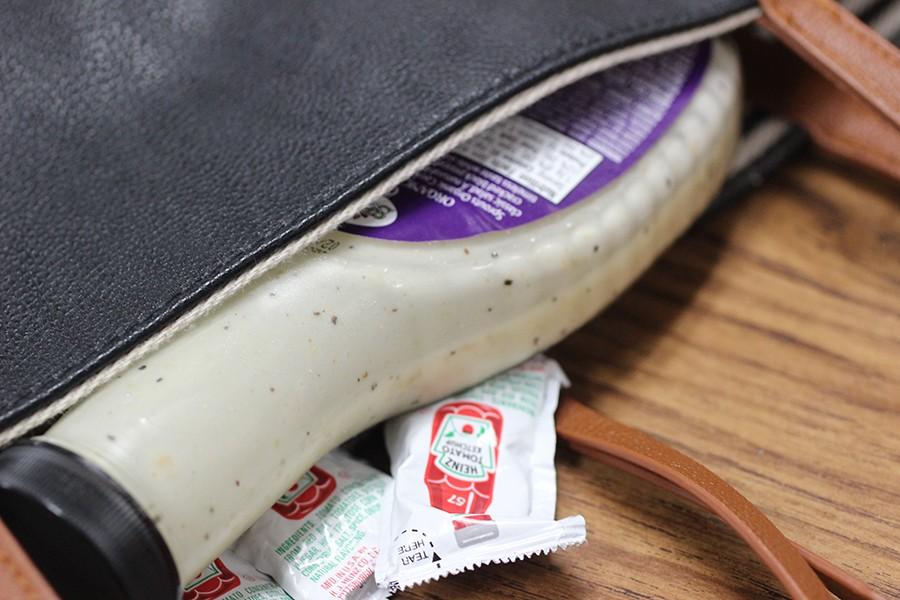A ‘dressing’ change
Photo Illustration
A press conference with Darin Crawford, the CFISD Director of Food Service, was held Wednesday Feb. 17th at Cy-Ranch High School.
This conference was held in the midst of a change in the CFISD school lunch policy. The new policy states: “Students are now limited to one (of each) condiment per meal. In addition, ranch will now be served in one ounce packaging and served only on the days when tossed salad and baby carrots are on the menu.”
Staff and students who bring their lunches are not allowed to get their condiments from the line, and re-entering the line for a forgotten condiment/milk carton is not allowed.
The decision to restrict the amount of condiments students and faculty members take has been determined with the Smart Snack Initiative and independent auditing.
At the press conference, student journalists were given the chance to ask Mr. Crawford whatever questions were burning in their minds. One of the first topics addressed was the recent change in condiment policy.
“The changes in the condiment policy stem from federal law,” Crawford said, “While I agree that it’s silly for students to only be allowed one packet of each condiment, it would be a violation if we allowed for them to take any more. Two packets of ketchup is too many calories from sugar. Two packets of ranch is too many calories from fat, according to the law.”
In addition, Crawford addressed the absence of ice cream from the district’s cafeterias within recent years.
“I believe adding ice cream back to the menu would definitely increase revenue. However, when Blue Bell left the industry, they stopped producing school ice cream,” Crawford explained. “However, we’ve recently found another supplier willing to make and deliver ice cream to the district. You should expect to see ice cream on the menu within the next month or so.”
With the increasing number of students taking pictures of their unsatisfactory lunches and uploading them to social media sites, like Instagram and Twitter, Darin encouraged students to take their complaints to the staff themselves.
“What I don’t think students understand is that we’re willing to address these problems and fix them,” Crawford said. “If you have something to say about your meal, our staff would be happy to listen to your concerns and come to a solution.”
Mr. Crawford concluded with a word of advice: Voting can help to change school lunch policies.
“If you want the policies to change, vote. If you aren’t of legal age, convince your parents to vote,” Crawford said. “The policies we implement are only made to comply with decisions made at the national level.”
Hi, I'm Lauren. I'm a senior, and the feature editor for the Langham Creek Howler.

Hi I'm Connor Duskie I'm the head editor of the Howler I've been on staff since the start first as the feature editor and head editor since sophomore year.













